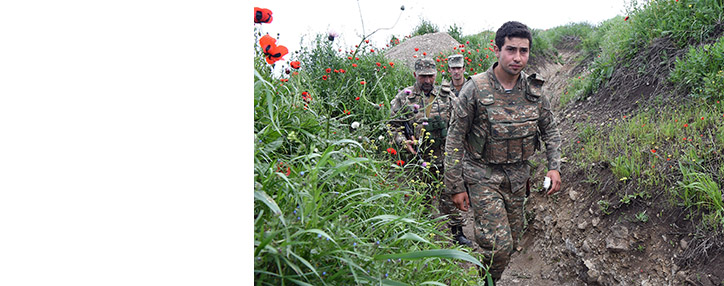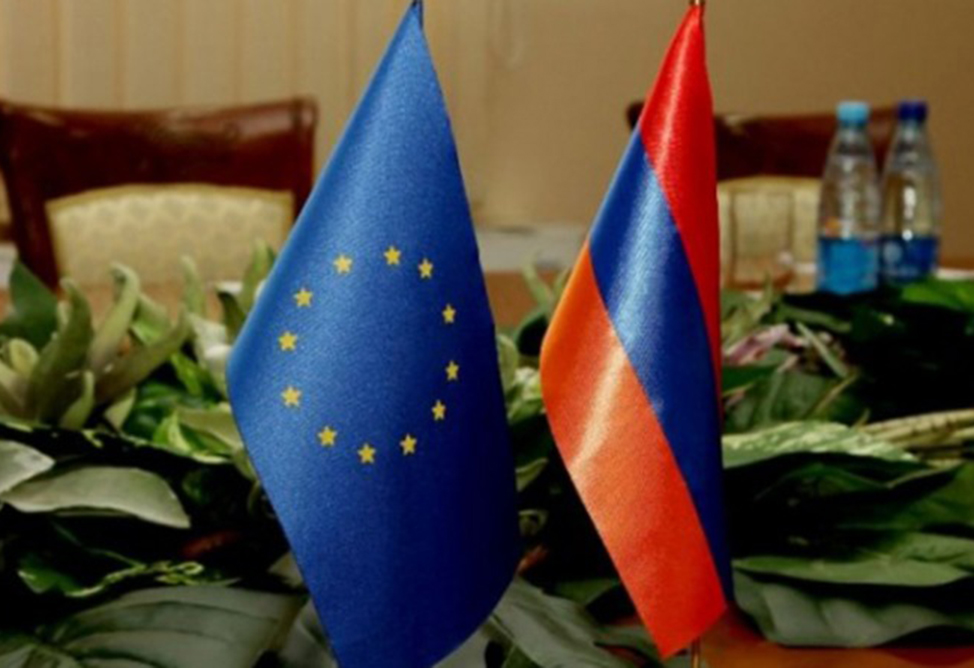Macron did not speak about territorial concessions in Karabakh, Nalbandian says
29.01.2018,
17:49
French President Emmanuel Macron did not speak about the need for territorial concessions in the resolution of the Nagorno-Karabakh conflict, Armenian Foreign Minister Edward Nalbandian said today in comments on Macron’s statements made during a visit to France by Armenian President Serzh Sargsyan earlier this month.

YEREVAN, January 29. /ARKA/. French President Emmanuel Macron did not speak about the need for territorial concessions in the resolution of the Nagorno-Karabakh conflict, Armenian Foreign Minister Edward Nalbandian said today in comments on Macron’s statements made during a visit to France by Armenian President Serzh Sargsyan earlier this month.
During a joint news conference with Sargsyan Emmanuel Macron said that the Karabakh conflict was not a frozen conflict, saying also the current status quo was unstable. In his words, a long-lasting solution for the benefit of the peoples of the region is possible only through negotiations
"The French president did not speak about the need for territorial concessions in Nagorno-Karabakh. France is one of the co-chairing countries of the OSCE Minsk Group, and all the co-chairing countries have repeatedly spoken about the principles that should be employed to settle the conflict," Nalbandian said today.
He noted that the conflict settlement principles make a single whole and attempts to separate one principle from the others are unproductive.
"The settlement of the Karabakh conflict is a package settlement. The peace brokers repeatedly said that the conflict should be settled step-by-step on the basis of a single package of proposals," Nalbandian said.
He also commented on his Azerbaijani counterpart Elmar Mammadyarov’s statement on the need for shifting to logical negotiations. According to Nalbandian, one should not have to look for logic in the official statements, made in Baku, even if they use that word.
‘What logic are they talking about when they backtrack on their own words, both in Vienna and in St. Petersburg (following the presidents of Armenia and Azerbaijan)? Or when they agree with the co-chairs on one thing and do something else, or when they agree to reduce tension on the line of contact and take new steps to aggravate it?, " Nalbandian said.
The Nagorno-Karabakh conflict erupted into armed clashes after the collapse of the Soviet Union in the early 1990s as the predominantly Armenian-populated enclave of Azerbaijan sought to secede from Azerbaijan and declared its independence backed by a successful referendum.
On May 12, 1994, the Bishkek cease-fire agreement put an end to the military operations. A truce was brokered by Russia in 1994, although no permanent peace agreement has been signed. Since then, Nagorno-Karabakh and several adjacent regions have been under the control of Armenian forces of Karabakh.
Nagorno-Karabakh is the longest-running post-Soviet era conflict and has continued to simmer despite the relative peace of the past two decades, with snipers causing tens of deaths a year. On April 2, 2016, Azerbaijan launched military assaults along the entire perimeter of its contact line with Nagorno-Karabakh. Four days later a cease-fire was reached. -0-
During a joint news conference with Sargsyan Emmanuel Macron said that the Karabakh conflict was not a frozen conflict, saying also the current status quo was unstable. In his words, a long-lasting solution for the benefit of the peoples of the region is possible only through negotiations
"The French president did not speak about the need for territorial concessions in Nagorno-Karabakh. France is one of the co-chairing countries of the OSCE Minsk Group, and all the co-chairing countries have repeatedly spoken about the principles that should be employed to settle the conflict," Nalbandian said today.
He noted that the conflict settlement principles make a single whole and attempts to separate one principle from the others are unproductive.
"The settlement of the Karabakh conflict is a package settlement. The peace brokers repeatedly said that the conflict should be settled step-by-step on the basis of a single package of proposals," Nalbandian said.
He also commented on his Azerbaijani counterpart Elmar Mammadyarov’s statement on the need for shifting to logical negotiations. According to Nalbandian, one should not have to look for logic in the official statements, made in Baku, even if they use that word.
‘What logic are they talking about when they backtrack on their own words, both in Vienna and in St. Petersburg (following the presidents of Armenia and Azerbaijan)? Or when they agree with the co-chairs on one thing and do something else, or when they agree to reduce tension on the line of contact and take new steps to aggravate it?, " Nalbandian said.
The Nagorno-Karabakh conflict erupted into armed clashes after the collapse of the Soviet Union in the early 1990s as the predominantly Armenian-populated enclave of Azerbaijan sought to secede from Azerbaijan and declared its independence backed by a successful referendum.
On May 12, 1994, the Bishkek cease-fire agreement put an end to the military operations. A truce was brokered by Russia in 1994, although no permanent peace agreement has been signed. Since then, Nagorno-Karabakh and several adjacent regions have been under the control of Armenian forces of Karabakh.
Nagorno-Karabakh is the longest-running post-Soviet era conflict and has continued to simmer despite the relative peace of the past two decades, with snipers causing tens of deaths a year. On April 2, 2016, Azerbaijan launched military assaults along the entire perimeter of its contact line with Nagorno-Karabakh. Four days later a cease-fire was reached. -0-



